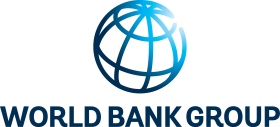Income inequality in Latin America ranks
among the highest in the world. It can be traced back to
the unequal distribution of assets (especially land and
education) in the region. But the extent to which asset
inequality translates into income inequality depends on the
redistributive capacity of the state. This paper documents
the performance of Latin American fiscal systems from the
perspective of income redistribution using newly-available
information on the incidence of taxes and transfers across
the region. The findings indicate that: (i) the differences
in income inequality before taxes and transfers between
Latin America and Western Europe are much more modest than
those after taxes and transfers; (ii) the key reason is
that, in contrast with industrial countries, in most Latin
American countries the fiscal system is of little help in
reducing income inequality; and (iii) in countries where
fiscal redistribution is significant, it is achieved mostly
through transfers rather than taxes. These facts stress the
need for fiscal reforms across the region to further the
goal of social equity. However, different countries need to
place different relative emphasis on raising tax collection,
restructuring the tax system, and improving the targeting of expenditures.
Authors and Publishers
Goñi, Edwin
López, J. Humberto
Servén, Luis
World Bank Group (WB)
The World Bank is a vital source of financial and technical assistance to developing countries around the world. We are not a bank in the ordinary sense but a unique partnership to reduce poverty and support development.
Data provider
World Bank Group (WB)
The World Bank is a vital source of financial and technical assistance to developing countries around the world. We are not a bank in the ordinary sense but a unique partnership to reduce poverty and support development.


